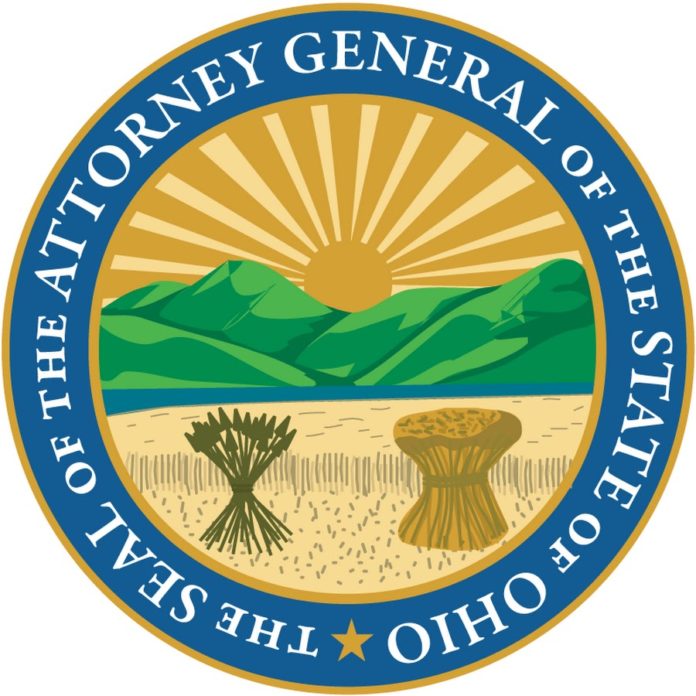(COLUMBUS, Ohio) — Attorney General Dave Yost and 32 other attorneys general today announced a proposed $438.5 million settlement with JUUL Labs stemming from a two-year multistate investigation into the e-cigarette manufacturer’s misguided marketing and sales practices.
“No nicotine marketing to kids! It was wrong when it was Joe Camel, and it’s wrong when it’s JUUL’s “Miint” and “Fruut” flavors and their influencer-led targeting,” Yost said. “This settlement puts an end to Juul’s trawling for new addicts among our children.”
JUUL was, until recently, the dominant player in the vaping market – a position the company attained, by willfully appealing to youths in its marketing and advertising, even though its e-cigarettes are both illegal for them to purchase and unhealthy for them to use.
The investigation found that JUUL:
- Relentlessly targeted underage users with launch parties; advertisements using young, trendy-looking models and influencers; social-media posts; and free samples. Almost all of JUUL’s advertising was conducted on Instagram, Twitter and Facebook. A study of the company’s Twitter account found that 45% of its followers were ages 13 to 17; only 20% were 21 or older.
- Manipulated the chemical composition of its product to make the vapor less harsh on the throats of young and inexperienced users.
- Sold e-cigarettes in youth-friendly flavors, including Miint, Fruut, Bruule, Tobaac, Cool Cucumber, Coco Mint and Mango.
- Falsely implied on its original packaging that the product contained a lower concentration of nicotine than it does; in fact, JUUL contains more nicotine than most other e-cigarettes.
- Suggested in its “Make the Switch” campaign that JUUL was a smoking-cessation device, even though it lacked authorization from the Food & Drug Administration (FDA) to make such a claim.
JUUL has ended its social-media marketing and now sells pods only in two flavors: tobacco and menthol.
Today’s settlement will force the company to comply with strict injunctive requirements that severely limit JUUL’s marketing and sales practices. Specifically, JUUL has agreed to refrain from:
- Marketing to youths.
- Depicting anyone under age 35 in any marketing.
- Using cartoons in its marketing.
- Paying for product placement.
- Selling brand-name merchandise.
- Selling flavors not approved by the Food and Drug Administration (FDA).
- Allowing access to websites without age verification on a landing page.
- Making representations about nicotine not approved by the FDA.
- Making misleading representations about nicotine content.
- Participating in sponsorships or naming-rights deals.
- Advertising in outlets unless 85% of the audience is adult.
- Advertising on billboards, public transportation and in social-media (other than testimonials on social-media by individuals over the age of 35, with no health claims).
- Using paid influencers.
- Using direct-to-consumer ads unless age-verified.
- Offering free samples.
The investigation was led by Connecticut, Texas and Oregon. Joining Ohio in signing on to the agreement were Alabama, Arkansas, Delaware, Georgia, Hawaii, Idaho, Indiana, Kansas, Kentucky, Maryland, Maine, Mississippi, Montana, North Dakota, Nebraska, New Hampshire, New Jersey, Nevada, Oklahoma, Puerto Rico, Rhode Island, South Carolina, South Dakota, Tennessee, Utah, Virginia, Vermont, Wisconsin and Wyoming.
The states are currently finalizing and executing the settlement, a process that could take three to four weeks. The proposed $438.5 million would be paid out over a period of six to 10 years, with the amounts paid increasing the longer the company takes to make the payments. If JUUL extends the payment period to 10 years, the final settlement could total up to $476.6 million.
Both the financial and injunctive terms exceed any previous agreement that JUUL has reached with other non-participating states to date.
Unrelated to this settlement, the FDA on June 23 ordered JUUL to stop selling its products in the United States. Following an appeal by JUUL, however, the FDA has since decided to let JUUL’s products stay on the market temporarily while the agency conducts an additional review.





















